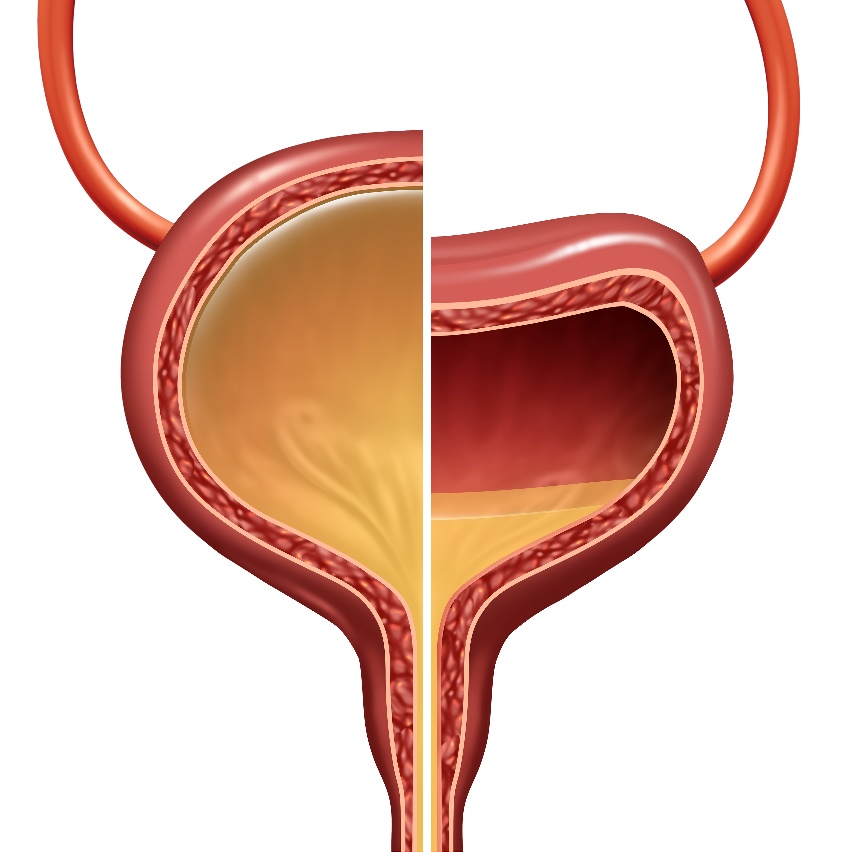
Overactive Bladder: What It Means and What You Can Do About It
An overactive bladder can be a very embarrassing ailment that can impact your personal, social and work life. The condition can even impact how well you sleep at night. According to the Urology Care Foundation, about 33 million Americans suffer from overactive bladder. This condition occurs when the bladder releases urine at the wrong time, which leads to excessive urination.
Here’s what you need to know about overactive bladder, including the causes, risk factors, treatment options, and signs it’s time to see a urologist.
What Is Overactive Bladder?
Overactive bladder is a health condition that causes a variety of symptoms, many of which can cause feelings of embarrassment. Dealing with these symptoms can sometimes cause you to want to isolate yourself or limit your social and work life activities to avoid feeling uncomfortable. The most common symptoms include:
- The sudden urge to urinate
- Inability to control urination (urge incontinence)
- Frequent urination
An overactive bladder also causes nocturia, when you’re woken up by the urge to urinate. A frequent urge to urinate not only leaves you running for the bathroom, it can be a true disruption to your everyday life.
What Causes Overactive Bladder?
When the bladder is working properly, it sends nerve signals to your brain that trigger the need to urinate. As you urinate, the pelvic floor and urethra muscles relax, and the bladder muscles tighten to push out the urine.
When the bladder muscles contract involuntarily, even when urine volume is low, this causes overactive bladder. These involuntary contractions cause the urgent and frequent need to urinate.

There are many other health conditions that can cause overactive bladder, including:
- Diabetes
- Urinary Tract Infections (UTI)
- Stroke
- Multiple Sclerosis
- Bladder abnormalities (stones, tumors, etc.)
- Constipation
- Enlarged prostate
- Impaired cognitive function
If you suffer from any of these health conditions and have noticed the urgent need to urinate throughout the day and night, now may be a good time to find a urology specialist in your area.
Who is at Risk?
There are several risk factors for overactive bladder. While not a common part of aging, there's an increased chance of suffering from the condition as you get older. Certain health conditions, such as diabetes, enlarged prostate, or a urinary tract infection can also complicate bladder function. Pregnancy, childbirth, and excess weight can also increase the risk of overactive bladder.
Some mental health conditions can also increase the chance of suffering from overactive bladder. People who suffer from a cognitive decline, such as Alzheimer's disease or who have suffered a stroke, can develop an overactive bladder.
Studies have found that certain genetic factors can make someone more susceptible to an overactive bladder and urinary incontinence. One study found that over half of overactive bladder variation can be explained by genetic factors.
When to Visit a Urologist: Options for Diagnosis
You may be reluctant to talk about bladder-related problems but discussing your symptoms with a doctor is the only way to get the diagnosis and treatment that you need. The most common way doctors diagnose overactive bladder is by asking questions about your medical history and your symptoms. Your doctor may also request a urine sample for testing.
Before making the trip to see a urologist, keep a bladder diary. Write down everything you drink, including how much and when. You'll also want to log each time you urinate and the time between bathroom visits. Lastly, make note of the urgency that you experience.

Your doctor will also likely perform a physical exam on your prostate or pelvic area. A cough stress test or a neurological exam may be conducted to determine any other underlying health issues. A urinalysis will also likely be requested. The urine sample you provide will be tested for the presence of glucose, blood, and bacteria.
If your urination habits are affecting your life and sleep, it’s best to seek a diagnosis and treatment from a urologist.
especially when it takes time away from your daily activities and affects your sleep.
Common Treatment Options
There's no one single treatment for overactive bladder. Treatment typically includes a combination of strategies that help to relieve symptoms of the condition. The first choice in managing overactive bladder is to make behavioral interventions. Common behavioral treatment options include:
- Losing weight
- Pelvic floor muscle exercises
- Bladder training
- Scheduled urination
- Intermittent catheterization
Through losing weight, strengthening the pelvic floor muscles, and sticking to a urination schedule, you will likely notice lessened symptoms of overactive bladder. There are also medications that a urology specialist may prescribe. These medications reduce urge incontinence and relieve other symptoms of overactive bladder.
Other Treatment Options
Depending on the cause of your overactive bladder, your doctor may recommend another form of treatment. For example, Botox can be injected into the bladder to partially paralyze the bladder muscles. Studies have shown that Botox is effective in reducing severe urge incontinence. Injections can last up to five months and need to be repeated for a continuous effect.
Another treatment option is nerve stimulation. This treatment regulates the nerve impulses that are sent to the bladder with a thin wire placed close to the sacral nerves, which send signals to your bladder.
If the treatment is successful, a permanent electrode can be implanted in the body, along with a battery-powered pulse generator. This is very similar to how a pacemaker keeps a heart beating.
In the event that your overactive bladder symptoms don't respond well to other treatments, surgery is a last-resort option. Surgery can be used to increase bladder capacity by using pieces of the bowel to replace a piece of the bladder.
Surgery can also be used to remove the bladder entirely. In this instance, a replacement bladder known as a neobladder can be placed in the body.
Need a Urologist? Choose Crystal Run Healthcare
We know that talking about an overactive bladder can be embarrassing, but, with the help of a trusted urologist, you can get the treatment you need to make overactive bladder a health problem of the past.
Our urology team at Crystal Run Healthcare not only offers treatment for overactive bladder, we’re also experienced in other common conditions, including kidney stones, enlarged prostate, urinary infections, and other health complications.
Use our website to find a local urologist in your area so that you can get the treatment you need to get back to your normal everyday life.
Sources:

 Optum Radiology at Crystal Run Healthcare
Optum Radiology at Crystal Run Healthcare Request medical records online
Request medical records online